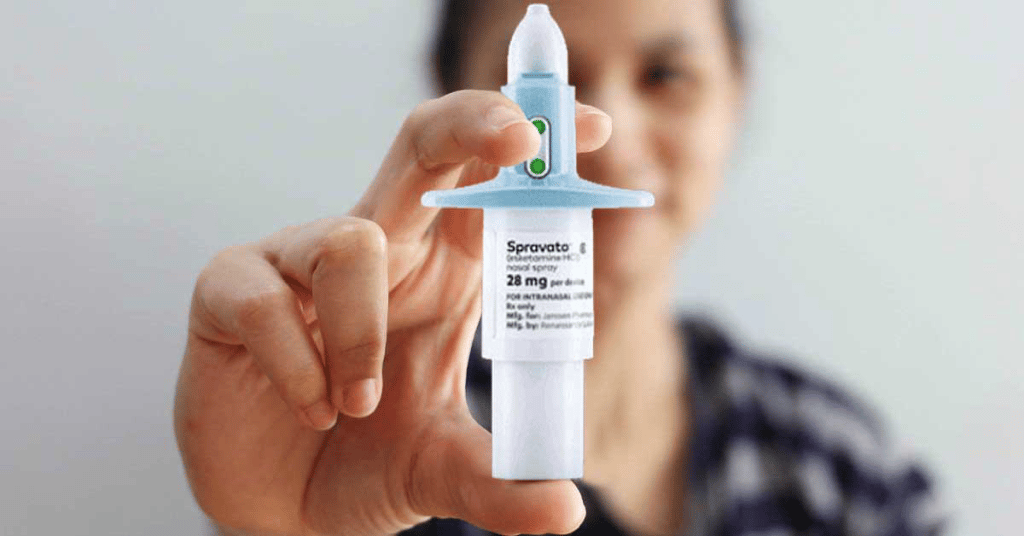In recent years, there has been an increasing interest in the use of ketamine for the treatment of various mental health conditions. What exactly is ketamine-assisted psychotherapy? And how does it work? Is it safe?
While ketamine has been used for decades as an anesthetic medication, its potential therapeutic benefits are only now beginning to be explored. One promising area of research is ketamine-assisted psychotherapy (KAT). This relatively new treatment approach shows promise for the treatment of conditions like depression, anxiety, and post-traumatic stress disorder (PTSD).
What is ketamine?
Ketamine is a dissociative medication used for decades as an anesthetic for humans and animals. It is also used as a recreational drug, that can also be referred to by a number of street names including Special K, Kit Kat, K, Super K, Purple, Vitamin K, and Cat Valium, among others.
When administered by an anesthesiologist, ketamine is one of the safest anesthetics compared with opiates, ether, and propofol, which can suppress respiration and heart rate.

Ketamine has shown promise in off-label treatment for depression, anxiety, and PTSD. It is thought to work by binding to and inhibiting the NMDA receptor, which allows it to block the reuptake of glutamate — an excitatory neurotransmitter — and by blocking its reuptake, ketamine leads to increased levels of glutamate in the synapse. This increase in glutamate activity is thought to be responsible for the antidepressant effects of ketamine.
What is ketamine-assisted psychotherapy?
Ketamine-assisted psychotherapy (KAT) is a type of psychotherapy that involves the administration of low doses of ketamine during therapeutic sessions. It is currently legal in the U.S. and a number of ketamine clinics are providing therapy at locations across the country.
The goal of KAT is to provide patients with relief from their symptoms so that they can more effectively engage in traditional talk therapy.

While the specific mechanisms by which KAT exerts its therapeutic effects are not yet fully understood, it is thought to work by modulating neurotransmitter systems in the brain, including those involved in mood and stress regulation.
A number of studies have been conducted on the efficacy of KAT for the treatment of mental health conditions like depression, anxiety, and PTSD. The results of these studies have been generally positive, with many patients reporting significant improvements in their symptoms following treatment.
Notably, KAT appears to be particularly effective for treating patients who have not responded well to other treatment approaches, such as traditional talk therapy and medication management.
How does ketamine-assisted psychotherapy work?
Ketamine-assisted therapy usually consists of six sessions, each lasting around two hours. During the first session, the patient is given a small dose of ketamine while lying on a couch or comfortably in a relaxing setting. The patient is also often asked to wear an eye mask and headphones and to focus on their breath. The therapist will typically be present throughout the session to provide support and guidance.

During the second session, the dose of ketamine is increased slightly. The subsequent four sessions follow the same format, with the dose being increased incrementally each time. By the end of the sixth session, the patient will typically have received a total dose of 0.5mg/kg.
The benefits of ketamine
One of the major advantages of ketamine over other antidepressants is that it works quickly. For some people with treatment-resistant depression, ketamine can provide relief within hours or days. Other antidepressants can take weeks or even months to have any effect.
For people suffering from treatment-resistant depression—defined as two or more drug therapies failing to relieve symptoms — ketamine-assisted therapy can be life-changing. In a study of 30 patients with treatment-resistant depression, 70 percent showed significant improvement after just three sessions of ketamine-assisted therapy. These effects were maintained at follow-up assessments conducted three and six months later.
The rapid onset of action makes ketamine an appealing option for people who are struggling with severe depression and have not found relief from other medications.
Additionally, because ketamine does not interact with many other medications, it can typically be safely used in people who are taking other medications for conditions like anxiety or pain.

Another study found that 60 percent of participants experienced clinically significant reductions in depression symptoms after just two sessions of ketamine-assisted therapy. And unlike traditional antidepressants, there were no adverse side effects reported.
Recently, a small study on adult autism patients showed ketamine therapy relieved some of the symptoms with a low incidence of side effects.
Are there side effects to ketamine therapy?
As with any medication, there are potential side effects associated with ketamine use.
The most common side effects are dizziness, nausea, vomiting, headache, blurred vision, urine retention, and increased blood pressure. These side effects are generally mild and go away on their own within a few hours.
Rare but serious side effects include dissociation (feeling disconnected from reality), delirium (a state of confusion), hypertension (high blood pressure), and seizures. If you experience any of these side effects, please contact your doctor immediately.
Related on Ethos:


